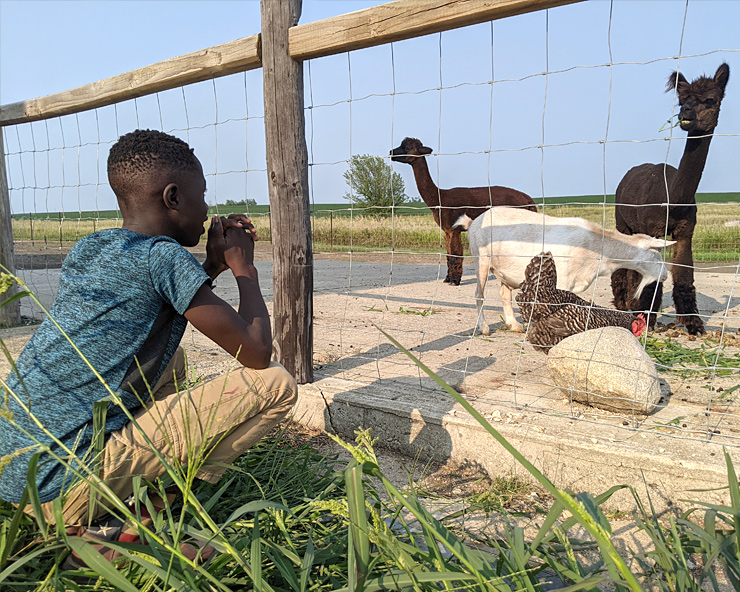Having visitors to your farm promotes both your business and agriculture. Human and animal contact can also spread germs and illness. You can help protect people, your animals, and your livelihood!
Health Risks to Animals
Farm visitors can come from many places and may bring germs to your farm. Some visitors will be coming from areas with poultry or livestock. Some may have recently traveled to other countries. These visitors are more likely to carry germs that can make your animals sick. All visitors should take precautions to keep animals safe.
Health Risks to People
Remember that germs can also pass from animals to humans and make people sick. Some people are at greater risk for illness. People at increased risk include:
- Children under the age of five,
- People with chronic health conditions,
- Adults age 65 and older, and
- Pregnant women.
Public Contact with Animals
A few simple actions will help protect your animals and your guests!
Look at your animals every day before visitors arrive. If any animals appear sick, remove them from public areas and isolate them from other animals.
Regularly clean and disinfect animal areas. Do not allow personal items such as strollers into animal areas. Provide a well-marked space outside animal areas to hold these items.
Place hand sanitizer at all entrances and exits. Display signs at all entrances and visiting areas reminding guests to limit contact with animals and follow all instructions. Provide a guest sign-in sheet to track all visitors. Provide visitors with clearly marked directional signs and tour routes. If possible, guests should move in one direction only, from entry to exit. Do not allow visitors to bring their pets unless the pet is a service animal.
For animals on visual display only, keep a distance of at least 10 ft between guests and animals. If visitors can interact with animals, allow animal contact only under staff supervision and through barriers such as fences. Post signs reminding adults to supervise children. If guests can feed animals, only allow feed that you provide. Encourage hand washing immediately after touching the feed and animals.
Young animals can become sick easily. Do not allow guests to handle newborn and young animals. Animals of all ages should receive proper care to prevent illness and parasites.
When moving manure or other material out of animal areas, avoid public spaces where guests walk. Clean public areas daily. Clean and disinfect frequently touched surfaces often.
Hand Washing
Post signs to remind all guests to wash their hands. Washing hands is especially important after touching animals. If possible, provide handwashing stations. Provide enough soap, hand towels, and sanitizers. Post signs about how to correctly wash hands.
Concessions/Food Sales
If you provide food or drinks for guests, prepare, serve, and eat them in areas separate from animals. Hand washing stations or hand sanitizers should be available in these areas. All food should be handled, prepared, and stored according to state and local health department guidelines.
For More Information
- Agritourism Biosecurity Tip Sheet, The Center for Food Security and Public Health, Iowa State University
- Petting Zoo Best Practices Checklist, Minnesota Department of Health
- Safe Interactions with Animals at Your Agritourism Business, Minnesota Department of Health
- Tips for Keeping People Health at Petting Zoos and Farms, Public Health Seattle & King County

